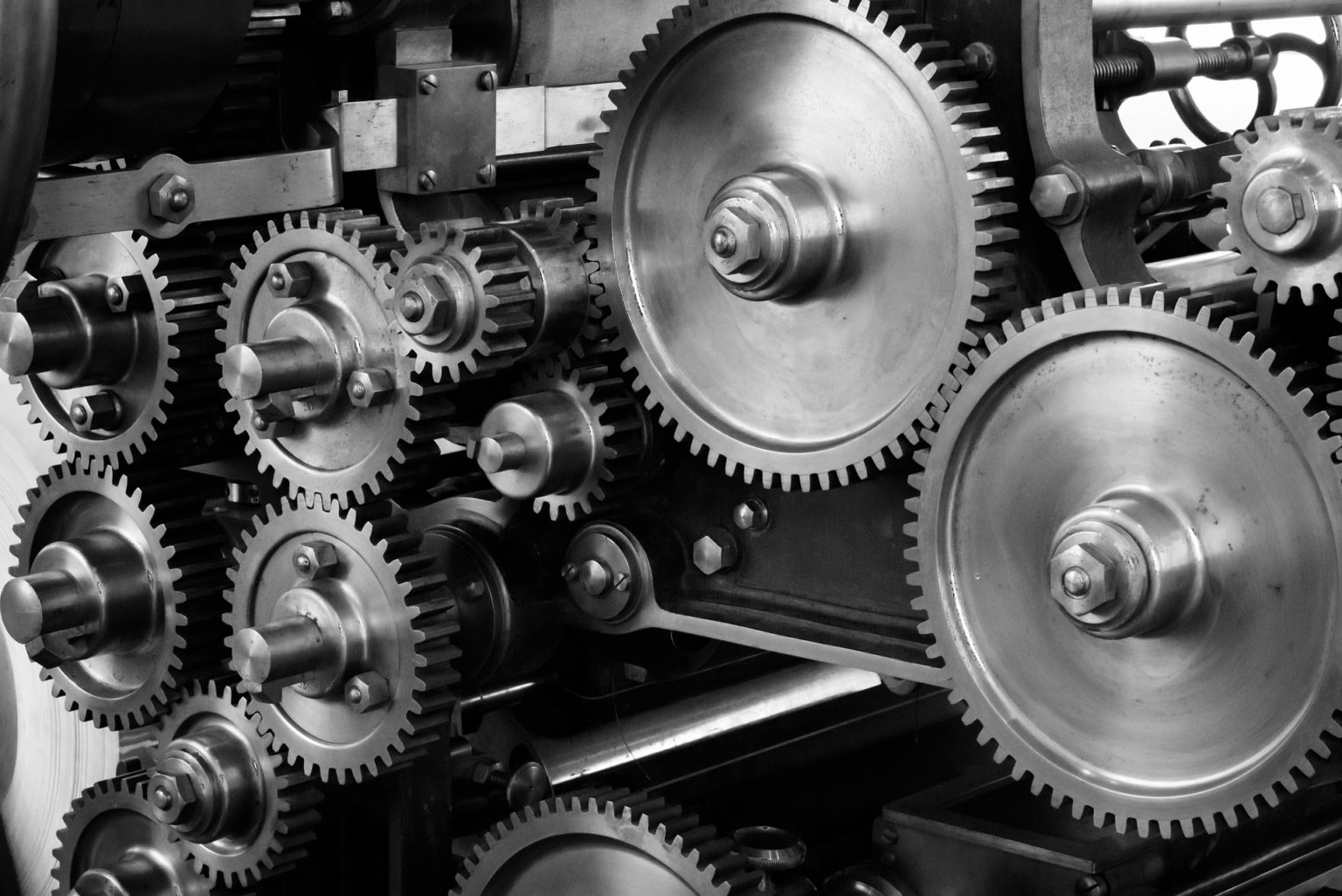B.Sc. in Mechanical Engineering
Five for regular and six for extension
Upon admission to the universities/Institutes of Technologies, students will join the School of Electrical and Computer Engineering based on the placement by the universities/Institutes of Technologies and the students’ interest for the discipline after completing the freshman semester.
Students must take and pass all the required modules to satisfy the requirements for graduation. CGPA and MGPA at least 2.00 No “F”, “D” grades Other requirements might be set by specific University graduation requirements.
Program Details
Mechanical engineers design machines, materials, and systems that satisfy a particular function. They deal with problems in areas such as energy conversion, mechanical components and systems, man and machine environments, instrumentation, and control of processes. Mechanical engineering has applications in all phases of the industry, including such challenging fields as aerospace, materials, design, and product reliability and safety. Mechanical engineers consider fluid mechanics, design, thermodynamics, mechanics, controls, materials, and heat transfer in addressing problems.
Mechanical Engineers research, design, develop, build, and test mechanical and thermal sensors and devices, including tools, engines, and machines. Mechanical engineering is a discipline of engineering that applies the principles of physics and materials science for the analysis, design, manufacturing, and maintenance of mechanical systems. It is the branch of engineering that involves the production and usage of heat and mechanical power for the design, production, and operation of machines and tools. It is one of the oldest and broadest engineering disciplines. The engineering field requires an understanding of core concepts including mechanics, kinematics, thermodynamics, materials science, and structural analysis.
Mechanical engineers use these core principles along with tools like computer-aided engineering and product lifecycle management to design and analyze manufacturing plants, industrial equipment and machinery, heating and cooling systems, transport systems, aircraft, watercraft, robotics, medical devices and more. Mechanical Engineering science emerged in the 19th century as a result of developments in the field of physics. The field has continually evolved to incorporate advancements in technology.
Mechanical engineers today are pursuing developments in fields such as composites, mechatronic nanotechnology. Mechanical Engineering overlaps with aerospace engineering, civil engineering, electrical engineering, petroleum engineering and chemical engineering to varying amounts. Like other career paths, entry into this particular branch of engineering also requires certain basic traits. First and foremost, you must have a penchant for mechanical components and machinery and how these machines work. You must be good at physics, chemistry and mathematics. You must also have skills such as an analytical bent of mind, logical reasoning and problem-solving. Scope Mechanical Engineers are required in all manufacturing facilities. The wcriteria forafor ria mechanical engineering challengesnges according to the type and domain of the company they are working with and the area of specialization. In a broader sense it can be said that mechanical engineer works on design and control of a system that goes into the process of manufacturing the machinery and product. He tests new systems for feasibility and efficiency and carries out quality management and improvement process. There is tremendous scope for mechanical engineers in automobile engineering, cement industry, steel, power sector, hydraulics, manufacturing plants, drilling and mining industry, petroleum, aeronautical, biotechno,logy and many more. Nowadays they are also increasingly needed in the environmental and bio-medical fields. A beginner in Mechanical Engineering can opt for various job openings su as: Maintenance EngineSafetyfety Engineer, Quality Assurance, CNC Programmer, Jr. Engineer, Design Engineer, CAD/CAM Trainer, Production Supervisor/Engineer, R&D Tra,,inee etc.

Carrier Direction
Apply theory and principles of mechanical engineering to modify, develop, test, or adjust machinery and equipment under the direction of engineering staff or physical scientists.
Conduct research, along with life scientists, chemists, and medical scientists, on the engineering aspects of the biological systems of humans and animals.
Adapt or design computer hardware or software for medical science uses. Evaluate the safety, efficiency, and effectiveness of biomedical equipment.
Jobs directly related to your degree include:
- Aerospace engineer
- Automotive engineer
- CAD technician
- Contracting civil engineer
- Control and instrumentation engineer
- Maintenance Engineer
- Mechanical engineer
- Nuclear engineer
Jobs where your degree would be useful include:
- Acoustic consultant
- Clinical technologist
- Corporate investment banker
- Land-based engineer
- Mining engineer
- Patent attorney
- Production manager
- Technical sales engineer
- Water engineer
Courses
| Courses | ECTS | Course Credit |
|---|---|---|
| Communicative English Skills | 5 | |
| Basic Writing Skills | 5 | |
| Civics and Ethical Education | 5 | |
| Introduction to Logic | 3 | |
| Applied Mathematics I | 7 | |
| Applied Mathematics II | 7 | |
| Engineering Mechanics I-Statics | 6 | |
| Engineering Mechanics II-Dynamics | 6 | |
| Introduction to Engineering Profession | 2 | |
| Engineering Drawing | 6 | |
| Applied Mathematics III | 7 | |
| Probability and Statistics for Engineers | 3 | |
| Numerical Methods | 5 | |
| Introduction to Economics | 5 | |
| Computer Computing and Programming | 5 | |
| Machine Drawing I | 5 | |
| Machine Drawing II with CAD | 5 | |
| Strength of Materials I | 5 | |
| Strength of Materials II | 5 | |
| Engineering Materials I | 5 | |
| Engineering Materials II | 5 | |
| Engineering Thermodynamics I | 5 | |
| Engineering Thermodynamics II | 5 | |
| Fluid Mechanics | 5 | |
| Workshop Practice – I | 3 | |
| Workshop Practice – II | 3 | |
| Machine Elements I | 5 | |
| Machine Elements II | 5 | |
| Mechanisms of Machinery | 5 | |
| Mechanical Vibration | 5 | |
| Heat Transfer | 5 | |
| Machine Design Project I | 5 | |
| Machine Design Project II | 5 | |
| Manufacturing Engineering I | 5 | |
| Manufacturing Engineering II | 5 | |
| Basic Electricity and Electronics | 5 | |
| Electrical Machines and Drives | 5 | |
| Instrumentation and Measurement | 5 | |
| Introduction to Mechatronics | 5 | |
| Regulation and Control | 5 | |
| Turbomachinery | 6 | |
| IC Engines & Reciprocating Machines | 4 | |
| Technical Writing and Research Methodology | 5 | |
| Materials Handling Equipment | 5 | |
| Maintenance of Machinery | 5 | |
| Industrial Internship | 30 | |
| Pneumatics and Hydraulics | 5 | |
| Introduction to FEM | 4 | |
| Power Plant Engineering | 5 | |
| Refrigeration and Air Conditioning | 5 | |
| Entrepreneurship | 5 | |
| Industrial Management and Engineering Economy | 5 | |
| Metrology Lab Exercise | 5 | |
| Quality Management | 5 | |
| Introduction to Tribology | 5 | |
| Product Design Development | 5 | |
| Agricultural Machinery Design | 5 | |
| Introduction to Engineering System | 5 | |
| Fluid Mechanics II-Aerodynamics | 5 | |
| Design of Renewable Energy System | 5 | |
| Thermo-fluid System Design | 5 | |
| Gas Turbine and Jet Propulsion | 5 | |
| Plant Layout and Design | 5 | |
| Design of Manufacturing Tools and Dies | 5 | |
| Computer Integrated Manufacturing | 5 | |
| Process Planning and Product Costing | 5 | |
| Plant Layout and Design | 5 | |
| Operation Planning and Control | 5 | |
| Operations Research | 5 | |
| Supply Chain Management and Logistics | 5 | |
| Fluid Mechanics II-Aerodynamics | 5 | |
| Heavy Duty and Construction Equipment | 5 | |
| Motor Vehicle Engineering | 5 | |
| Automotive Maintenance | 5 | |
| Fundamentals of Railway Systems Engineering | 5 | |
| Rail Motive Power Design | 5 | |
| Rail Vehicle Design | 5 | |
| Rail-Vehicle Dynamics | 5 | |
| B.Sc. Thesis | 12 |

